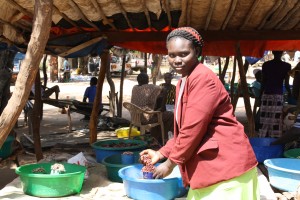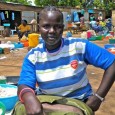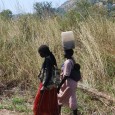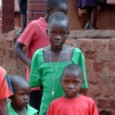 In late November and early December James Collett visited Hope Ofiriha (HO) on behalf of our new partner Deki. He was met at the airport by Alice Amwony who manages our local operations in Magwi, Juba, and Uganda.
In late November and early December James Collett visited Hope Ofiriha (HO) on behalf of our new partner Deki. He was met at the airport by Alice Amwony who manages our local operations in Magwi, Juba, and Uganda.
HO microloan is in its nascent stage with a network of two branches in Juba area. However, it has already mobilized 1,000 poor women into 50 groups, and the disbursement of the first loans to 20 women borrowers starting this January. The initial experiences in Juba suggest that microloan opportunities and needs are substantial. Microloan can play a powerful role in building sustainable peace and stability in South Sudan by supporting self-employment in the formal economy which supports the majority of the poor women.
In a group loan, each client receives an individual loan but is part of a larger group of 20 clients. The group is there to provide support to the members and to provide a system of peer pressure, and the group is formally bound by a group guarantee. In this case members of the group are responsible for repaying the loan of their fellow member in case of delinquency or default.
Our loans are always used for investment in small business, ranging from a start -up business simply selling tomatoes at the local market, to larger operations such as a restaurant. But given the levels of literacy, business skills and experience of a typical client, we deliver group a series of training modules to ensure the loan is successful.
Why is HO’s approach to microloan unique from other approaches?
HO launched microloan activities in 1996 to encourage the increase of income for the defeated by poverty mothers through the setting up and expansion of micro-loans by going to them in rural areas. Like some of the other microloan institutions operating in South Sudan, HO’s microloan programme provides collateral -free financing and group-to-group service to collect loan installments from its members.
Together with our partners HO wants to give microloan to 5000 women heads of household over five years in South Sudan and Uganda in 2014.






